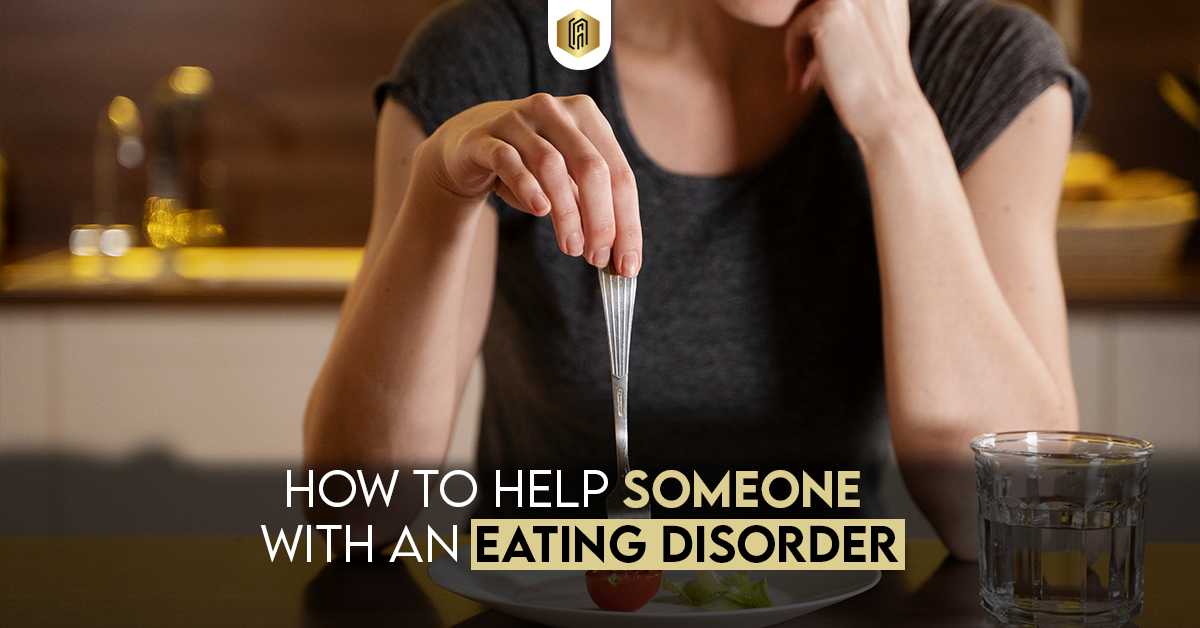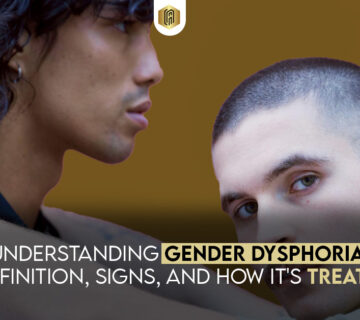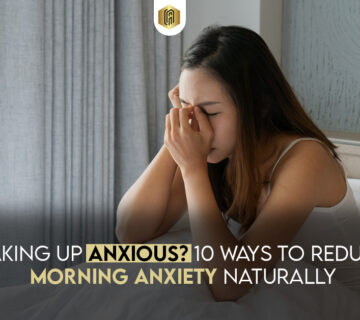Eating issues are intricate battles. They resonate with individuals of every age, background, and gender. If a loved one has an eating disorder, you may feel overwhelmed or confused. You might not know how to help someone with an eating disorder.
We will simplify the process into clear, actionable steps. We’ll use easy language. Let’s discover how you can make an impact!
Ascension Psychiatric Services: Your partner in eating disorder recovery. We mix skill and compassion to fight anxiety, relapse, and hidden struggles. Reach out to regain confidence and hope.
What Is an Eating Disorder? Breaking Down the Basics
An eating disorder is more than a plate of food. It’s a complex mental health challenge. It spirals into harmful habits surrounding eating, exercise, and self-image.
Common causes are:
- Anorexia: limiting food severely.
- Bulimia: bingeing and then purging.
- Binge-eating: overeating repeatedly.
Yet lurking below the surface is a hidden eating disorder – behaviors that fly under the radar. Picture this:
- Secretly skipping meals or tossing away untouched food.
- Obsessive calorie counting, treating numbers like sacred scripture.
- Working out too much to “offset” every snack.
People with eating disorders often hide their shame and fear. They mask their struggles to fit in. Grasping this situation helps you engage with them in a real and caring way.
Seeing the Symptoms
In the delicate process of helping someone with an eating disorder, stay alert. Tune into these subtle signals that softly whisper of distress:
- Physical Signals: Abrupt weight changes, spellbinding dizziness, or a perpetual chill.
- Emotional Clues: Anxious thoughts around food, a fiery temper, and evasive social moves.
- Behavioral Warnings: Skipping meal-centric gatherings, slipping into baggy attire, or indulging in body-bashing talk.
If these signs emerge, it’s your cue to step in. Remember: you’re not a sleuth. Your goal is to inspire, not to judge.
How to Deal with Someone Who Denies There’s a Problem
Aiding someone dealing with an eating disorder can be hard. It’s even harder when they deny there’s a problem. Here are some compassionate strategies to guide you:
- Stay Serene: Speak calmly, saying “I care about you.”
- Embrace “I” Statements: Share your feelings, “I’ve noticed some sadness lately. Can we chat?”
- Skip the Food Chatter: Instead of saying, “You need to eat,” ask, “How you are feeling today?”
Patience is your greatest ally. Letting down your guard takes time.
What to Do If Your Friend Has an Eating Disorder: A Friend’s Role
When a friend is dealing with an eating disorder, here’s how to help:
- Open Your Heart: Take a moment to say, “I’m here for you, no matter what.”
- Skip the Ultimatums: Threats only construct walls. Offer your hand instead, guiding them to resources.
- Suggest Professional Support: How about we explore counseling together?
Need help? Talk to a parent or teacher.
How Long Does It Take to Recover from Anorexia Nervosa? Understanding the Journey
Recovery from anorexia nervosa is a long, uncertain process. It takes months for some, years for others. Several factors influence this journey:
- Severity: The length and depth of the struggle.
- Support: The embrace of therapy, doctors, and family.
- Mindset: A commitment to pursuing treatment.
Healing involves both body and mind. It requires restoring weight while building self-esteem. So let’s toast to progress! Every new food tried and each therapy session attended is a win to celebrate.
Preventing a Relapse Eating Disorder: Staying Strong After Recovery
Restoration can be a tough path to traverse. Stressful events can tempt a relapse in disordered eating. Here’s how to steer the course:
-
Craft a Safety Plan
Find your triggers and coping techniques with your therapist.
-
Stay Alert
Keep an eye out for signs, like crash diets or meals disappearing.
-
Offer Encouragement
Remind them, “You’ve succeeded before; you can do it again!”
A fallback isn’t a loss. It’s simply a twist on your road to wellness.
How to Help Someone with an Eating Disorder: Everyday Support Tips
Small actions can spark remarkable change. Here’s how:
-
Dine Together
Create a laid-back atmosphere during meals. Skip any comments on choices.
-
Celebrate Their Strengths
Emphasize their essence over appearance. “You’re bursting with creativity!”
-
Offer Fun Distractions
Watch a captivating movie, engage in a game, or take a refreshing walk. Each choice can easily boost your mood.
The Hidden Eating Disorder: Why Some Struggles Go Unnoticed
Eating disorders can be hidden. They often blend in with behaviors that appear harmless. Here’s how the hidden disorder may manifest:
- “Healthy” eating can turn into an obsession, removing entire food groups.
- Excuses pop up at meals, such as “I already ate” or “I’m not hungry.”
- Guilt follows “unhealthy” food choices.
These behaviors can still harm physical and mental health. Ask gentle questions like “How do you feel about food?”
Building a Support Team: Why Professionals Matter
This journey is not just yours, but your reaching out for help is perfectly fine! You can find therapists, dietitians, and doctors to help. Ask your loved ones to:
- Adopt therapy; cognitive-behavioral therapy works wonders for eating disorders.
- Join support groups to bond with others who truly get it.
- Schedule regular check-ups with a doctor for ongoing wellness.
If they resist, say, “Let’s just try one session. I’ll go with you.”
What NOT to Say: Avoiding Harmful Comments
Even kind words can cause pain. Avoid:
- “You look healthier!” (This can make them feel self-conscious.)
- “Why don’t you just eat?” (It’s not that simple.)
- Comparing them to others.
Personal Wellness
Assisting someone can be emotionally exhausting. To avoid burnout:
-
Set Boundaries
It’s fine to express, “I require a pause today.”
-
Talk to Someone
Share your feelings with a counselor or friend.
-
Practice Self-Care
Recharge, savor delightful meals, and dive into your passions.
Remember, you can’t share sunshine from a shadowed soul!
Hope and Healing: Recovery Is Possible
Recovery might feel impossible to your loved one, but many people overcome eating disorders. Share stories of hope (without comparing). Remind them: “You’re not alone. We’ll get through this together.”
Final Thoughts: Your Role in Their Journey
Supporting someone with an eating disorder is no magic-wand solution. It’s a winding journey. It’s shaped by strong love, endless patience, and uplifting support.
Cherish the small victories; every step is a shining triumph. Stay informed, seek out experts, and be their guiding star. Your support may light the way to healing.
FAQs
Is it my fault if my loved one has an eating disorder?
No. Many factors cause complex eating disorders. Your role is to support them, not to blame yourself.
Should I force someone to eat if they refuse?
No. Forcing food can increase anxiety. Instead, encourage them to seek professional help and offer to eat meals together in a calm, positive setting.






No comment